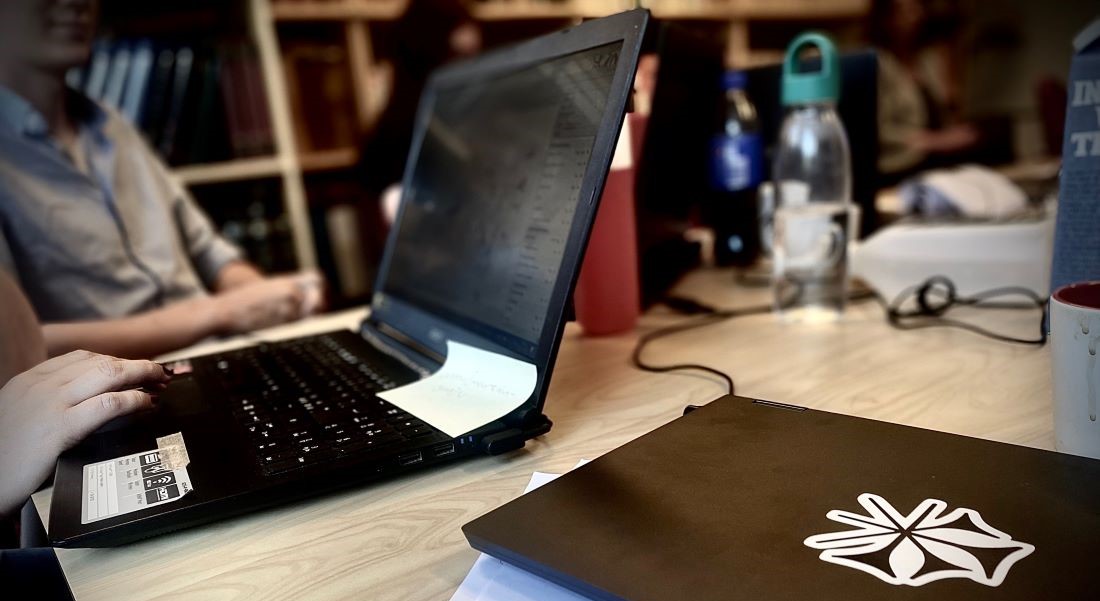Digital Applications in Assyriology Nordic Summer School
The third Digital Applications in Assyriology Nordic Summer School will take place at the Department of Cross-Cultural and Regional Studies at the University of Copenhagen, Denmark. The submission deadline for student assignments is 26 August, and the results of the assignments will be presented by the students in a Zoom meeting on 30 August 2024. The application deadline for participation in the summer school is 31 March 2024. Further instructions under ‘How to apply’ below.

The summer school is jointly organised by the projects Ancient Middle Eastern Nordic Network (AMENN), Geomapping Landscapes of Writing (GLoW) and Centre of Excellence in Ancient Near Eastern Empires (ANEE), and aims to provide students with a working knowledge of core digital applications for the creation, curation, analysis and visualisation of digital data in the field of Assyriology.
The five-day programme will focus on real-world cases from Assyriology and related fields presented by researchers who are actively engaged with ongoing and digitally oriented research projects. Next to a solid working knowledge of digital applications and their use in the field of Assyriology, the summer school will give participating students an opportunity to meet and interact with students from other countries, as well as a diverse range of scholars from universities in the Nordic countries and from further afield.
The summer school is intended for students in Assyriology and related fields without much prior experience in the application of digital tools to the study of cuneiform sources or related materials. Preference will be given to BA- and MA-level students from higher research institutions in the Scandinavian countries, but the summer school is open to participants from all over the world. Applications from doctoral students will be considered as well. Participants are required to bring a laptop for their personal use.
The course lasts five full days of classroom teaching (Monday–Friday), consisting of hands-on training in a variety of computing applications as well as lectures and discussions led by the teaching staff and invited speakers. After the classroom part of the course, students will be given projects to work on independently. These independent projects will be submitted on 26 August and briefly presented and discussed with staff and the whole group in a concluding meeting in Zoom on Friday 30 August.
Participants who successfully complete the summer school program and independent project will receive a letter confirming their participation, that the students can use at their home universities to receive study credits. However, the summer school cannot guarantee that all universities will provide study credit for the course. The completed coursework will be graded as pass/fail, based on 1) participation in classes (50% of the grade) 2) submitted project (30%) 3) presentation of the submitted project (20%).
Overall, the summer school will give the participants:
- an in-depth understanding of file formats and information search and management
- ways of collecting, cleaning, and integrating text and data
- knowledge of online data structures and the use of linked data
- basic visualisation methods for exploring and communicating data
- structure and use of map resources and geographical information systems
- preparing data for and working with social network analysis
- using and exploring existing lexical networks
- the ability to execute a simple digital or computational humanities research project under supervision
Among the programmes and tools introduced in the course are the following:
- Excel
- OpenRefine - tool for inspecting and cleaning tabular data
- Python version 3.9. - programming language
- Tableau - tool to visualize tabular data
- QGIS - free and open source GIS
- Gephi - free and open source network analytical software
Students wishing to participate in the summer school should submit an application letter (max. two pages), outlining their motivation for participating, current stage of education, courses passed, and a brief summary of any previous experience with digital applications for research. Please provide contact details for a primary teacher or course representative at your home institution, whom the organisers can contact in case of questions.
Note that participation in the summer school is free of charge, but that participants will have to cover their own travel and accommodation expenses. The summer school staff will be available to offer advice and guidance on travel options and places to stay.
Applications should be submitted as a single pdf-document by email to snett@hum.ku.dk no later than 31 March 2024. Applicants will receive confirmation of acceptance by 15th of April 2024. If you have any issues, please contact the organisers as soon as possible.
The Summer School is organized by Dr Seraina Nett (University of Copenhagen), Dr Lena Tambs (University of Helsinki), and Gustav Ryberg Smidt (Ghent University).
Teaching staff & guest lecturers will include Dr Seraina Nett (University of Copenhagen), Dr Lena Tambs (University of Helsinki), Gustav Ryberg Smidt (Ghent University), Prof Saana Svärd (University of Helsinki), Dr Aleksi Sahala (University of Helsinki), Dr Rune Rattenborg (Uppsala University), and Emilie Pagé-Perron (Oxford University, Cuneiform Digital Library Initiative).
For questions and inquiries, please contact the organisers at this address: snett@hum.ku.dk.
Map of South Campus
View directions.
View on map of the Faculty of Humanities - South Campus.
View map of South Campus (pdf).
